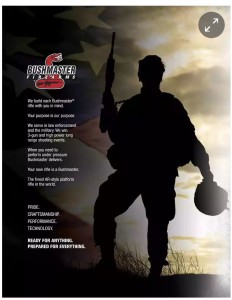Yale History Professor Timothy Snyder has written two books of immediate importance: On Tyranny – Twenty Lessons From The Twentieth Century and The Road to Unfreedom – Russia Europe America. The Road to Unfreedom explains Russia’s goals for Europe and America and describes many of the means, including massive amounts of disinformation, Russia uses to achieve its goals. The Road to Unfreedom explains what is happening now to advance anti-democratic impulses in Europe and America. It is a fascinating and chilling book. On Tyranny is a short book listing twenty lessons from the Twentieth Century on how to resist the pull of tyrannical forces. Lesson number 5, is entitled “Remember Professional Ethics.” It applies to all professions but especially to lawyers. Here is Lesson 5 in full:
When political leaders set a negative example, professional commitments to just practice become more important. It is hard to subvert a rule-of-law state without lawyers, or to hold show trials without judges. Authoritarians need obedient civil servants, and concentration camp directors seek businessmen interested in cheap labor.
Before the Second World War, a man named Hans Frank was Hitler’s personal lawyer. After Germany invaded Poland in 1939, Frank became the governor-general of occupied Poland, a German colony where millions of Jews and other Polish citizens were murdered. He once boasted that there were not enough trees to make the posters that would be needed to announce all of the executions. Frank claimed that law was meant to serve the race, and so what seemed good for the race was therefore the law. With arguments like this, German lawyers could convince themselves that laws and rules were there to serve their projects of conquest and destruction, rather than to hinder them.
The man Hitler chose to oversee the annexation of Austria, Arthur Seyss-Inquart, was a lawyer who later ran the occupation of the Netherlands. Lawyers were vastly overrepresented among commanders of the Einsatzgruppen, the special task forces who carried out the mass murder of Jews, Gypsies, Polish elites, communists, the handicapped and others. German (and other) physicians took part in ghastly medical experiments in the concentration camps. Businessmen from I.G. Farben and other German firms exploited the labor of concentration camp inmates, Jews in ghettos, and prisoners of war. Civil servants, from ministers down to secretaries, oversaw and recorded it all.
If lawyers had followed the norm of no execution without trial, if doctors had accepted the rule of no surgery without consent, if businessmen had endorsed the prohibition of slavery, if bureaucrats had refused to handle paperwork involving murder, then the Nazi regime would have been much harder pressed to carry out the atrocities by which we remember it.
Professions can create forms of ethical conversation that are impossible between a lonely individual and a distant government. If members of professions think of themselves as groups with common interests, with norms and rules that oblige them at all times, then they can gain confidence and indeed a certain kind of power. Professional ethics must guide us precisely when we are told that the situation is exceptional. Then there is no such thing as “just following orders.” If members of the professions confuse their specific ethics with the emotions of the moment, however, they can find themselves saying and doing things that they might previously have thought unimaginable. Snyder, Timothy, On Tyranny – Twenty Lessons form the Twentieth Century, pages 38-41.
My takeaway is that lawyers are part of a very important group governed by the Rules of Professional Conduct and other parts of the law of lawyering. Snyder’s lesson applies directly to government lawyers and lawyers acting on behalf of the government but we are part of the same group as those lawyers, which gives us the right if not the duty to speak out when we see violations of the rule of law, legal ethics and the law of lawyering.




